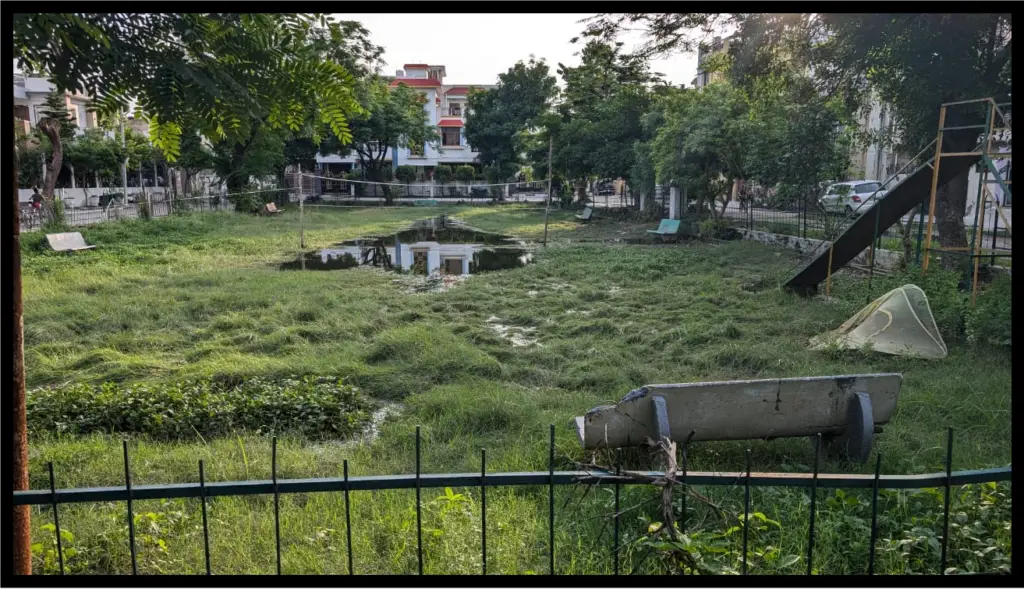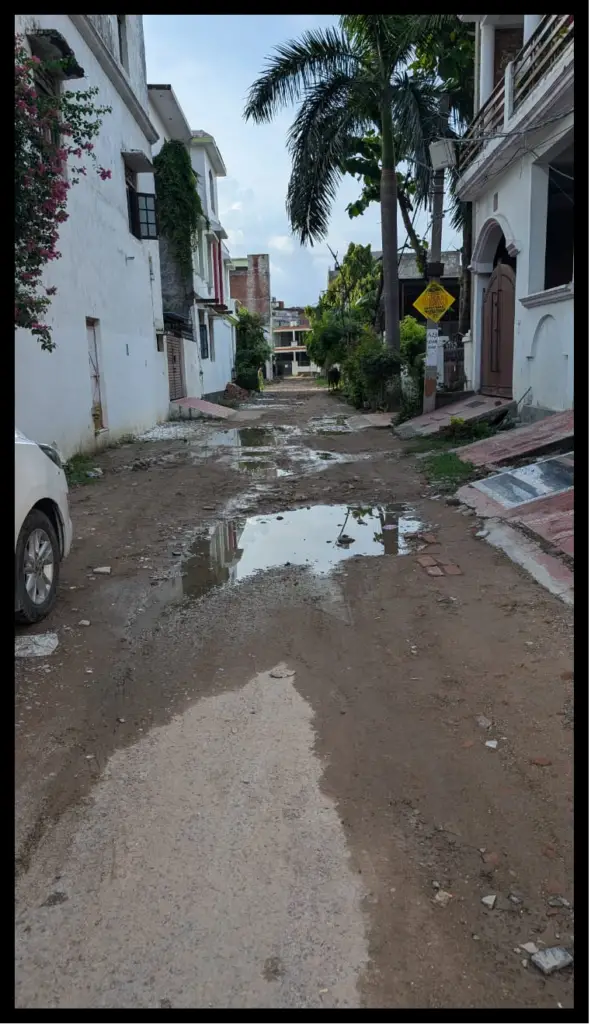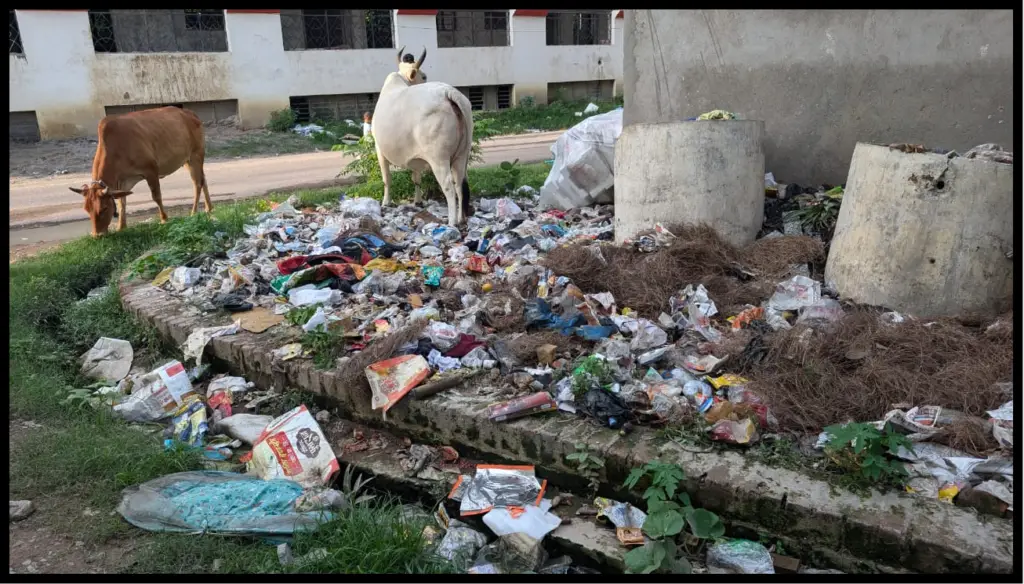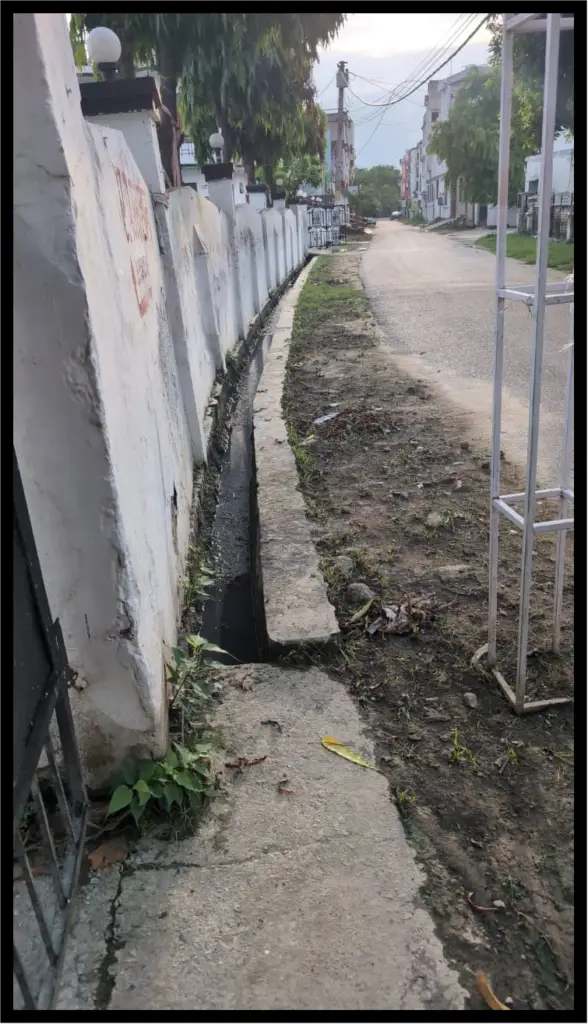Garbage management from my point of view is a basic necessity for a household as well as for a locality as a whole. Unfortunately, in India in the majority of areas, urban as well as rural, garbage collection is the least concerned matter and is often overlooked. Not many realise what impact a polythene thrown away by the windows of your cars makes. In this article, I have looked into the local garbage collection and management system of a locality of Lucknow where mostly well to do families reside. I took interviews with around 8-10 families to understand their perspectives regarding the garbage collection methods adopted and its impact on the daily lives of the people living in the area.
Environmental Sociology helps in understanding the connection between human society and the ecosystems in which it exists, particularly how daily routines and social systems, institutions, and cultural practices have an effect on the surrounding environment. Dr. Andrew Manning, a senior lecturer at Charles Sturt University, points out that addressing environmental issues facing communities is critically important. It include ideas from sociology, ecology, geography as well as environmental studies in order to develop a holistic outlook on these relationships. The key theories include, the social construction of nature which shows that cultural factors and power relations influence our views about the environment, political economy approach looks at economic structures and inequalities that shape environmental behaviors. While the ecological modernization approach argues for compatibility between technological progress and conservation so as to promote sustainable development. Environmental injustice mentions about the unequal political economies and suggests how the situation can be improves such as by regulating environmental health disparities between populations and organising social movements advocating for green transitions like awareness campaigns against climate change. Environmental sociology often serves as a guide for policy-makers when making decisions concerning the environment. As a result, it shows ways in which these concepts might help us develop social justice policies that enhance human-nature relations and have a harmonious relationship between society and the natural environment.
Local garbage management is closely related to environmental sociology in many ways
For instance, environmental sociology looks into how human activities and social practices affect the environment. These garbage collection methods in various localities help in understanding the broader implications of waste management on both local ecosystems and community health.
Local government policies and community organisations also shape garbage collection practices. Environmental sociology shows us how these structures impact environmental outcomes and community well-being, highlighting the role of social institutions in managing environmental issues. The impact of garbage collection methods often reveals issues of environmental justice. Marginalised communities often suffer the greater burdens from the poor waste management, such as increased pollution which in turn risks their health. Environmental sociology focuses on these disparities, aiming to address and rectify inequities in environmental burdens and benefits. It also involves managing environmental risks, such as those related to pollution and public health. Environmental sociology explores how societies perceive and address these risks. Waste management practices also affect community health and environmental quality, and through environmental sociology, we can understand how local actions contribute to broader environmental outcomes and how communities should adopt sustainable methods.
In the interviews that I conducted, I asked very basic questions to the residents of a specific locality in Lucknow in order to understand how garbage is collected and managed in the locality and what impact it has on the community as well as on the environment. The locality had residents who belonged to well-to-do families to whom I asked a series of questions. These questions focused on the methods of garbage collection, the frequency of collection, and any issues residents face with the current system. I then inquired about how the garbage is collected and how often the garage is collected. Residents were asked if they experience problems such as irregular collection or overflowing bins, and whether they often find the garbage bins full or overflowing. Furthermore, I asked them about whether garbage collection affects daily life and whether anyone in their family has experienced health issues due to the garbage in the area. I asked about any community clean-up events or programs they are aware of and are they willing to take steps to improve the garbage collection situation. Residents were also asked to give suggestions in order to improve garbage collection in their area. Lastly, I asked how often they see garbage in public areas like streets and parks and if they have noticed any blocked drains or waterlogging due to garbage.
The situation of the colony after a 30-minute rainfall


Another resident mentioned that garbage is collected by both municipal corporation people and private garbage collectors, who go door-to-door on alternate days. Vendors collect garbage stored in homes and public dustbins are not there in the colony. This resident has not notice any bad smell or health issues due to garbage but emphasised that there should be a fixed time for vendors, and the collection should be regular. They also pointed out the need for authorities to clear drains as waterlogging often occurs during monsoons, which in turn leads to polythene waste blocking the drains.

Garbage dumps due to non-regular collection of garbage by the municipal corporation
A third resident stated that garbage is collected door-to-door, but the collection is irregular, leading to overflowing bins. They said that he has not experienced any health issues but mentioned that he has tried to take action to improve the situation by organising a garbage collection drive with the help of an NGO. He suggested that the Nagar Nigam should ensure daily garbage collection and send cleaners to maintain the cleanliness of the area regularly.
Another interview revealed that garbage is collected by both municipal and private vendors through door-to-door collection. This resident didn’t face significant problems with the collection system and reported no health issues. However, they highlighted the need for regular and timely garbage collection and suggested that the local government should address the issue of waterlogging issue.
An another interviewee told me that garbage collection is irregular and often overflowing, causing bad smells and pests. They mentioned that no one in their family has experienced health issues related to garbage, but they believe that the community’s health will deifinetly be affected if the current garbage management system continues. He suggested that garbage should be collected daily and that respective authorities should monitor this strictly.


The cleaner areas of the colony
These interviews highlighted several key issues with the current garbage collection methods, such as irregular collection, overflowing bins, and the associated health and environmental problems. Residents suggested improvements like daily collection, better monitoring by authorities, and community involvement in clean-up efforts. After learning the residents’ experiences and perceptions, I realised the common issues and it revealed that the community’s engagement in addressing these problems and how they wanted to put in efforts for potential improvements for waste management practices. This approach highlighted the significant relationship between garbage collection methods and community well-being, showing the importance of effective waste management for environmental and public health.
The study of local garbage collection methods and their impact on the community can be studied from he aspect of environmental sociology, emphasising the connection between societal practices and environmental outcomes. In the locality which I chose for my case study, the common method of waste collection is door-to-door, which also has problems like irregular schedules and overflowing bins, leading to negative consequences like unpleasant odors, pests, and potential health risks affecting the daily lives of residents. The feedback from residents highlights the need for improvement, such as establishing a more regular collection schedule, improving the waste management infrastructure and encouraging active community participation in maintaining cleanliness. This shows the central idea of environmental sociology, where social structures and community engagement play critical roles in shaping environmental outcomes. Addressing the flaws in the current garbage collection system is essential for safeguarding public health and protecting the local environment for the future, which needs a collaborative effort between local authorities and the community to bring about a culture of environmental responsibility.
This article, in conclusion, shows us how studying from the perspective of environmental sociology can bring about practical solutions to everyday environmental challenges, demonstrating that sustainable waste management is not just a technical issue but a social one as well. Through sociological insights into environmental policies and practices, communities can achieve more sustainable and equitable outcomes, leading to a healthier and more livable environment for all.
References
- https://www.tandfonline.com/journals/rens20/about-this-journal#aims-and-scope
- https://insight.study.csu.edu.au/environmental-sociology/
- https://www.longdom.org/open-access/the-key-concepts-and-significance-of-environmental-sociology-101992.html
- Interviews of around 8 families living the locality.
My name is Aditi Jha and i am currently a 2nd-year Master’s student of sociology at South Asian University, New Delhi. I completed my undergraduate degree in History honors from University of Delhi in 2023. I have a keen interest in political sociology and academic writing.
